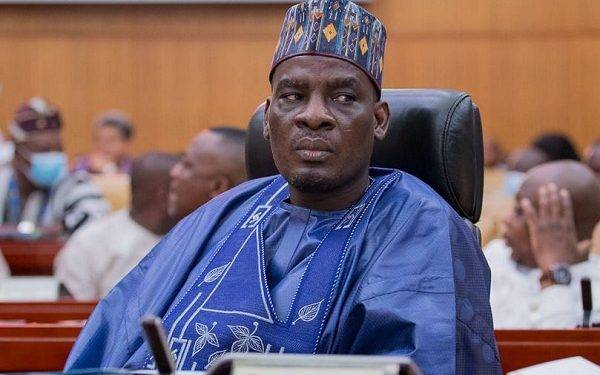In a significant development for Ghana’s education system, the Minister for
Education, Haruna Iddrisu, has announced that the government is taking steps to
phase out the controversial Double-Track system in Senior High Schools (SHS) by
2027. This decision follows concerns raised by educators, students, and parents
about the challenges the system poses, including overcrowding, inadequate
resources, and a strain on the overall quality of education.
The Double-Track system was introduced as a short-term solution to accommodate the increasing number of students enrolling in SHS due to the Free Senior High School (SHS) policy. Under this system, the academic year is divided into two tracks, with one group of students attending school in the first semester and another group attending in the second semester. While the intention behind the system was to ensure that more students had access to education, it has faced criticism for its impact on teaching and learning.
Haruna Iddrisu made the announcement during an engagement with the
Conference of Heads of Assisted Secondary Schools (CHASS) at a meeting in
Sunyani, located in the Bono Region of Ghana. During the meeting, the minister
provided details of the government’s plan to gradually phase out the
Double-Track system. According to Iddrisu, the government has already begun
planning key reforms to ensure the successful transition to a more sustainable
system by 2027. One of the key reforms includes revising the curriculum to
better align with the needs of students and the country’s educational goals.
The education minister emphasized that these changes would require
restructuring the administration of the Ghana Education Trust Fund (GETFund),
which plays a critical role in financing educational infrastructure and
resources. Iddrisu revealed that the government intends to set up a board that
will be responsible for approving all expenditures related to education,
ensuring transparency and proper allocation of funds. This restructuring, he
noted, is a vital step in ensuring that the educational reforms are implemented
effectively.
In his remarks, Haruna Iddrisu also stressed that the government remains
fully committed to investing in education and human capital development. He
assured stakeholders that the GETFund would continue to play a pivotal role in
improving school infrastructure across the country. By improving the physical
learning environment, the government aims to ensure that the new system will
have adequate resources to accommodate all students without resorting to the
overcrowding that the Double-Track system has caused in recent years.
The government’s efforts to end the Double-Track system come at a time when
education continues to be a top priority for the administration. By setting a
clear timeline for the phase-out, the government aims to address the concerns
surrounding the current system, which has been a source of frustration for both
students and teachers. Over the years, many have pointed to issues such as
inadequate classroom space, lack of proper teaching materials, and a shortage
of qualified teachers, all of which have been exacerbated by the Double-Track
system.
The decision to phase out the system by 2027 is expected to be a
game-changer for the education sector in Ghana. It reflects the government’s
recognition of the need to balance the increasing demand for education with the
available resources and infrastructure. Iddrisu emphasized that while the
government’s current priority is to improve the quality of education, it also
aims to ensure that all students, regardless of their background, have equal
access to quality learning experiences.
While some critics have expressed concerns about the feasibility of ending
the Double-Track system within the given timeframe, others have welcomed the
announcement, viewing it as a positive step towards improving the quality of
education in Ghana. The move has been hailed as a clear sign of the
government’s commitment to addressing the challenges facing the education
sector and ensuring that the future of Ghana’s youth is not compromised by
overcrowded classrooms and a lack of resources.
As the government moves forward with its plans to phase out the Double-Track
system, attention will be focused on the implementation of the proposed
reforms. Key stakeholders, including educators, policymakers, and parents, will
be watching closely to see how the government’s efforts will unfold in the
coming years. The successful phasing out of the Double-Track system will
undoubtedly require careful planning, investment, and collaboration from all
sectors of society.
For now, Ghana’s education system stands at a critical juncture, and the
coming years will be crucial in shaping the future of the nation’s students.
The announcement made by Haruna Iddrisu signals a strong commitment to
improving education and ensuring that all students have the opportunity to
succeed. As Ghana continues to invest in education, the hope is that these
efforts will help create a more equitable, accessible, and sustainable system
for generations to come.




No comments yet
Be the first to share your thoughts!